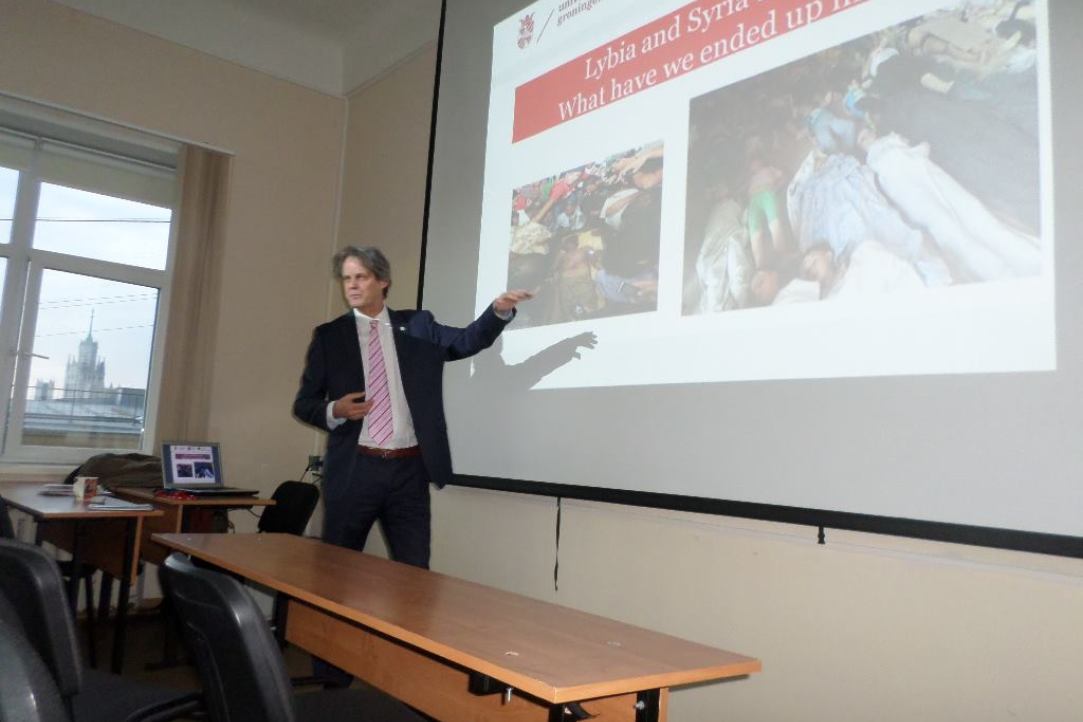Humanitarian problems, international solidarity and development
Demographic department and the Public Policy Department (Faculty of Social Sciences) organized series of seminars within the HSE Teaching Excellence Initiative with prof Joost Herman (University of Groningen)

What is unique as compared with past times is the level of international co-operation required to carry out disaster relief. More and more, the question of prevention and mitigation of potential disaster situations must be considered. The scholars must assess the potential in international politics and law for meeting the new reality. The international disaster relief systems must be improved, but what will ultimately be acceptable to governments is not yet clear. In fact, the institutional and juridical factors already exist and can be the instruments for the advancement of humanitarian achievements.
Despite considerable progress in recent decades in the humanitarian field, especially through the United Nations and other international bodies, existing legal instruments and their implementation reveal certain gaps and imperfections. A pressing task facing the international community is to meet the growing challenge presented by colossal humanitarian problems which are either left without a solution or inadequately dealt with under existing law and practice. It is an established fact that in recent decades the number of natural and man-made disasters has been increasing in all parts of the world.
There is consequently, a greater need now than ever before to resolve a variety of international humanitarian issues which emerge from complex and interrelated emergency conditions. The concerned of both the traditional areas of humanitarian law and practice, ranging from the role of the International Red Cross to the United Nations System as well as with the increasingly significant role of regional bodies and non-governmental organisations. In seeking progress in the humanitarian field, it has become clear that we must aim not only to improve humanitarian relief operations but also to change the humanitarian order or the context in which humanitarian problems and responses are set.
The main topics of the speach were:
-The opportunities for the students for the internships and voluntary work in international humanitarian organizations (bureaucratic and organizational approach) – what should teachers and managers know to organize this proces
-The dominant role of NOHA in the shaping of the European Higher Education Area (humanitarian education)
-International humanitarian action, operationalization of humanitarian mechanisms in (post) conflict and natural disaster areas.
- The interlinkage of humanitarianism with development and development cooperation
- The opportunities for the students for the internships and voluntary work in international humanitarian organizations and take part in humanitarian actions (possible cases)
- The incorporation of international humanitarian action and international solidarity and development/
- Humanitarian actions and Dutch Foreign Policy (comparisons with the Russian Federation).
by Samson Mhina, first-year student

